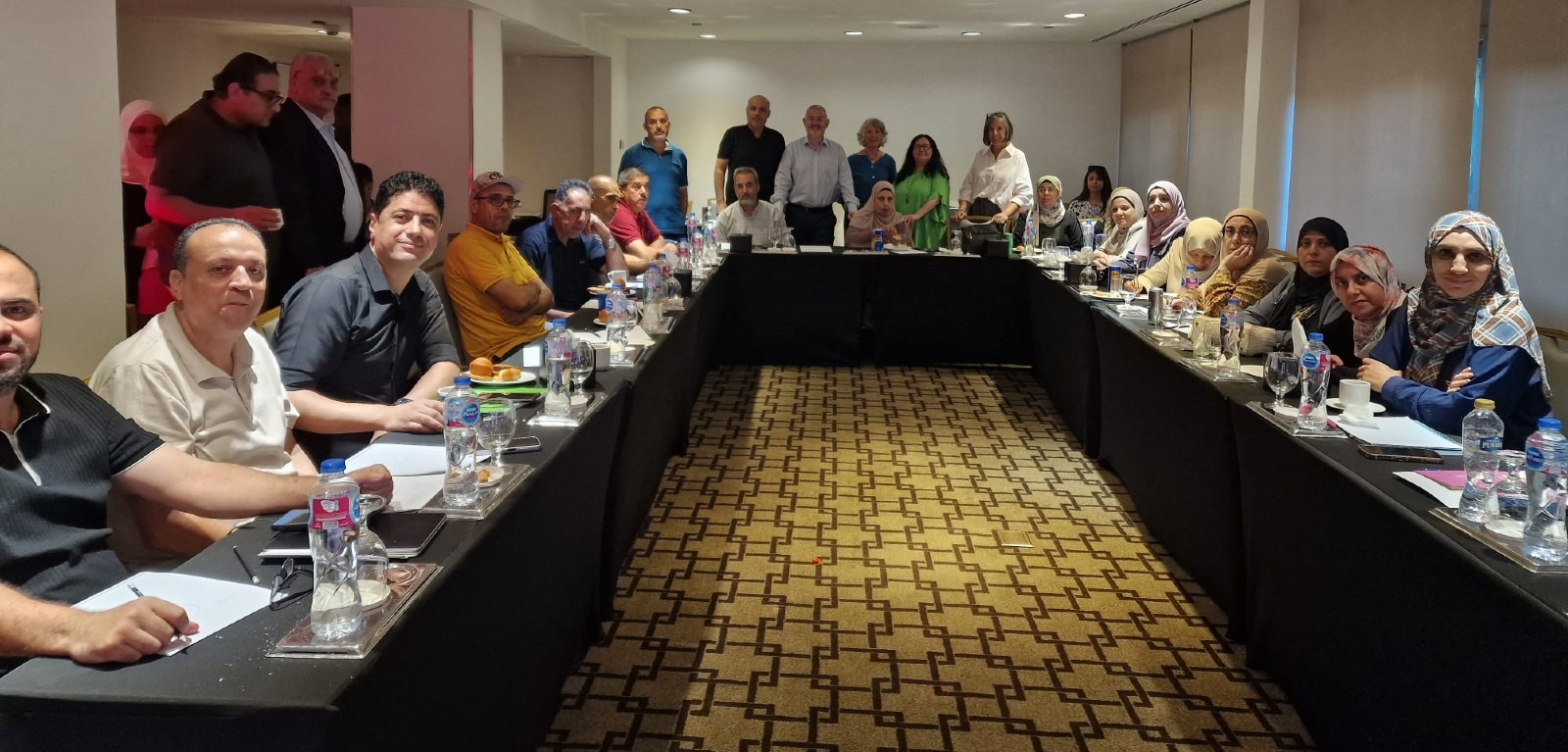Queen’s Delegation travel to Cairo to support Palestinian Educators
A delegation from Queen’s University Belfast travelled to Cairo this week to meet with Palestinian educators from Gaza for a series of discussions focused on rebuilding and shaping the future of education in Palestine.

The programme, organised in partnership with Forward Thinking, will be undertaken in association with St Mary’s University College who will deliver contributions virtually. They will bring together expertise from Northern Ireland and the Palestinian region to share insights on education in societies impacted by conflict.
Across the Programme, participants will explore the theory and practice of trauma-informed pedagogy, which recognises the impact of trauma on students. It grounds an educational approach in the understanding of how trauma affects learning, behaviour, and overall well-being. Participants will also examine how the aims of education and educational debates can be applied to the context of conflict-affected societies, and the lessons that can be drawn from Northern Ireland’s education system as a transitioning society, including in its structures and curriculum design.
The University had initially planned to bring 40 educators from Gaza to Queen’s for a seven-day intensive course focused on capacity building within the Palestinian education system this week; however, due to visa complications, Queen's academics will now travel to Cairo instead.
Dr Ryan Feeney, Vice President of Governance & External Affairs, and Registrar at Queen’s University Belfast, said:
“Queen’s holds University of Sanctuary status and has a long-standing commitment to supporting education in conflict-torn regions, demonstrated through our partnership with the Council for At Risk Academics (CARA), our Copty Scholarships for Palestinian students, and by sharing expertise gained from Northern Ireland’s own journey towards reconciliation. This visit reflects our belief in the transformative power of education to heal, rebuild, and offer hope for future generations.
“It is essential that there is ongoing international engagement now on how to rebuild the Education system in Gaza post-conflict. It was our hope to facilitate this Programme on our campus in Belfast; however, the complications with visas meant this was not possible, and we will attempt to do this again later in the academic year.”
The Copty Scholarship was first introduced in 2020 by Gina Copty and Chris McDowell. It was extended with investment by the University in 2024 to cover four postgraduate places for students with Palestinian nationality who live in Gaza or the West Bank, including East Jerusalem. This year, one scholar has faced challenges being evacuated from the Gaza area due to the escalation of violence and greater restrictions placed on the movement of people. Queen’s continues its efforts working with relevant governments to secure safe passage for the individual and has committed to their scholarship place remaining available until this can happen.
The Queen’s delegation visiting Cairo brings world-leading expertise in education in divided and post-conflict societies. Collectively, their research and policy engagement have helped shape education reform in Northern Ireland and internationally, addressing issues such as integration, shared education, social cohesion, and the role of curriculum in reconciliation.
The ideas exchange with Palestinian educators comes as they consider the monumental challenge of rebuilding and sustaining an education system under the pressures of ongoing conflict, and help inform educational priorities in a future Palestinian state.
Professor Peter Finn, Principal at St Mary’s said:
“At St Mary’s University College, we feel privileged to make a small contribution to the process of rebuilding and shaping of education in Palestine. Our focus is on the role of teachers and teacher education as well as community based educational initiatives and international outreach in offering some hope to a place which has been devastated. We are very conscious of the humanitarian catastrophe in Gaza and the fact that thousands of innocent children have been killed.
“Our approach is inspired by the thinking of Nelson Mandela about education. Mandela recognised education as ‘the most powerful weapon which you can use to change the world.’ We do not underestimate the scale of the education challenge in Palestine and we know there are no ready-made solutions, however this collaborative initiative of Queen’s University and St Mary’s University College is based on the most precious human value of hope.”
The visit forms part of Forward Thinking’s ongoing work to promote inclusive dialogue and understanding, particularly in the Middle East, and builds on strong educational partnerships between Northern Ireland institutions and international communities affected by conflict.
Media
For media enquiries contact alana.fisher@qub.ac.uk